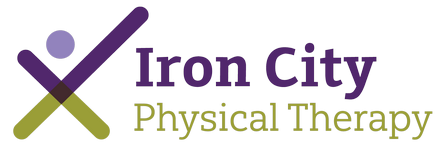 Healthy bones play an important role in your overall health by providing structure to your body, protecting your organs, supporting your muscles, and storing calcium. While it’s crucial to build strong bones during childhood and adolescence, it’s equally important to maintain healthy bones during your adult life. Healthy bones help to protect against osteoporosis, fragile bones, and bone fractures, which lead to morbidity, mortality, and decreased quality of life. Eating a balanced diet and engaging in regular physical activity helps to maintain healthy bones, but nutritional supplements can help bridge any nutritional gaps in your diet.
Healthy bones play an important role in your overall health by providing structure to your body, protecting your organs, supporting your muscles, and storing calcium. While it’s crucial to build strong bones during childhood and adolescence, it’s equally important to maintain healthy bones during your adult life. Healthy bones help to protect against osteoporosis, fragile bones, and bone fractures, which lead to morbidity, mortality, and decreased quality of life. Eating a balanced diet and engaging in regular physical activity helps to maintain healthy bones, but nutritional supplements can help bridge any nutritional gaps in your diet.
The Basics of Osteoporosis
Osteoporosis is one of the most common musculoskeletal conditions and is characterized by decreased bone mass and damaged bone tissue. These changes cause the bones to weaken, making them more susceptible to fracture, with the hips and spine being the most common sites of fractures.
There are a variety of risk factors for osteoporosis, including:
- Increasing age – being over the age of 50 increases risk.
- Female sex – being female increases risk.
- Genetics – having a parent who has had a hip fracture increases risk.
- Menopausal state – decreased estrogen levels during menopause contribute to bone loss and increase risk.
- Lower body weight – being underweight increases risk
- Smoking status – smoking can negatively impact bone health and increases risk.
- Alcohol – consumption of alcohol increases risk.
- Medical conditions – certain conditions, including celiac disease and rheumatoid arthritis, increase risk.
- Physical activity – living a sedentary lifestyle increases risk.
- Nutritional status – inadequate intake of certain vitamins and minerals, including calcium, vitamin D, magnesium, vitamin K, vitamin C, boron, and silicon, increases risk.
Best Supplements for Bone Health
When it comes to healthy bones, various supplements can play a crucial role, including:
- Vitamin D – essential for calcium absorption and bone turnover, which helps to maintain bone health. While exposure to sunlight is a natural source, supplements can be beneficial, especially during winter months or if you have limited sun exposure. The recommended adult dosage is 600-800 IU.
- Calcium – helps to support bone density, which helps to maintain bone health. Dietary sources include dairy products such as milk, cheese, and yogurt, as well as fortified foods. Supplements at an adult dosage of 1000-1200 mg may be beneficial for bone health.
- Magnesium – contributes to bone formation and strength. Dietary sources include dark leafy greens, nuts and seeds, whole grains, and fortified foods. Supplements at an adult dosage of 320-420 mg may be beneficial for bone health.
- Vitamin K – helps regulate calcium and supports bone proteins. Dietary sources include dark leafy greens, including kale, broccoli, and spinach, as well as soybean and canola oil. Supplements, at an adult dosage of 90-120 µgm, may be beneficial for bone health.
- Vitamin C – this antioxidant supports collagen synthesis and helps with bone tissue repair. Dietary sources include citrus fruits, bell peppers, and strawberries. Supplements at an adult dosage of 75-90 mg may be beneficial for bone health.
- Boron – helps maintain calcium levels and supports bone metabolism. Dietary sources include nuts, whole grains, and legumes. Supplements at an adult dosage of 3 mg may be beneficial for bone health.
- Silicon – promotes collagen formation, which contributes to bone strength. Dietary sources include whole grains and beans. Supplements at an adult dosage of 40 mg may be beneficial for bone health.
- Collagen – supports bone structure and may enhance healing. Supplements at an adult dosage of 2.5 to 10 g may be beneficial for bone health.
Maintaining bone health is crucial as you age to protect against osteoporosis and its complications, including fractures. Regular exercise and a balanced diet can help to support bone health; however, supplements can play an important role in filling any nutritional gaps you may have. Your physical therapist can review your diet with you and help you determine which supplements can best support your bone health, helping you to maintain your quality of life.
References
- Zhang Q. New insights into nutrients for bone health and disease. Nutrients. 2023;15(12):2648. Published 2023 Jun 6. doi:10.3390/nu15122648
- Rondanelli M, Faliva MA, Barrile GC, et al. Nutrition, Physical activity, and dietary supplementation to prevent bone mineral density loss: A food pyramid. Nutrients. 2021;14(1):74. Published 2021 Dec 24. doi:10.3390/nu14010074
- Price CT, Langford JR, Liporace FA. Essential nutrients for bone health and a review of their availability in the average North American diet. Open Orthop J. 2012;6(1):143-149. doi:10.2174/1874325001206010143
- Wang Q, Yu H, Kong Y. Association of vitamins with bone mineral density and osteoporosis measured by dual-energy x-ray absorptiometry: A cross-sectional study. BMC Musculoskelet Disord.2024;25:69. doi:10.1186/s12891-024-07173-y.
- Porfírio E, Fanaro GB. Collagen supplementation as a complementary therapy for the prevention and treatment of osteoporosis and osteoarthritis: A systematic review. Revista Brasileira de Geriatria e Gerontologia. 2016;19(1):153-164. doi:10.1590/1809-9823.2016.14145




